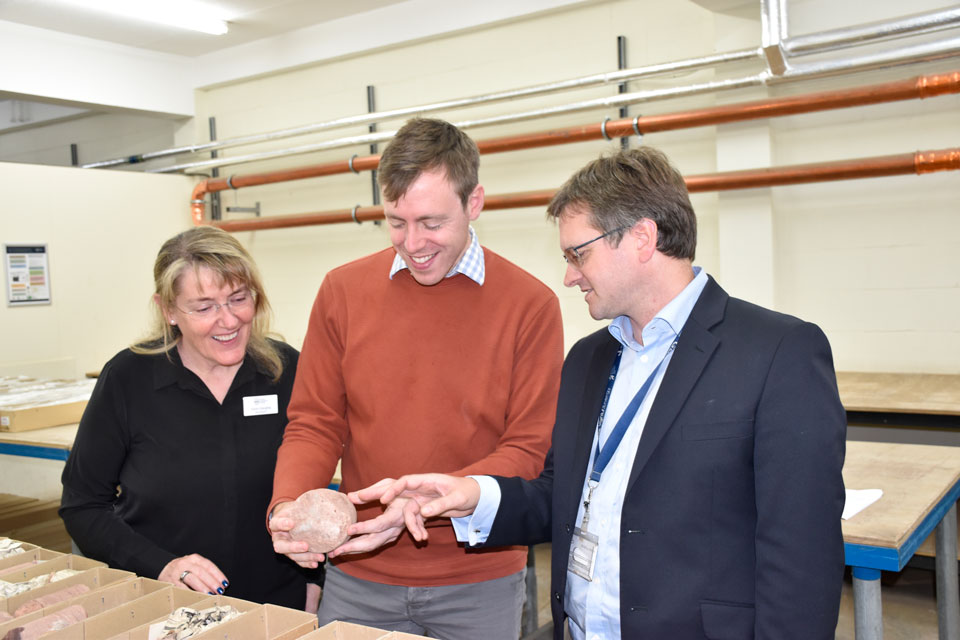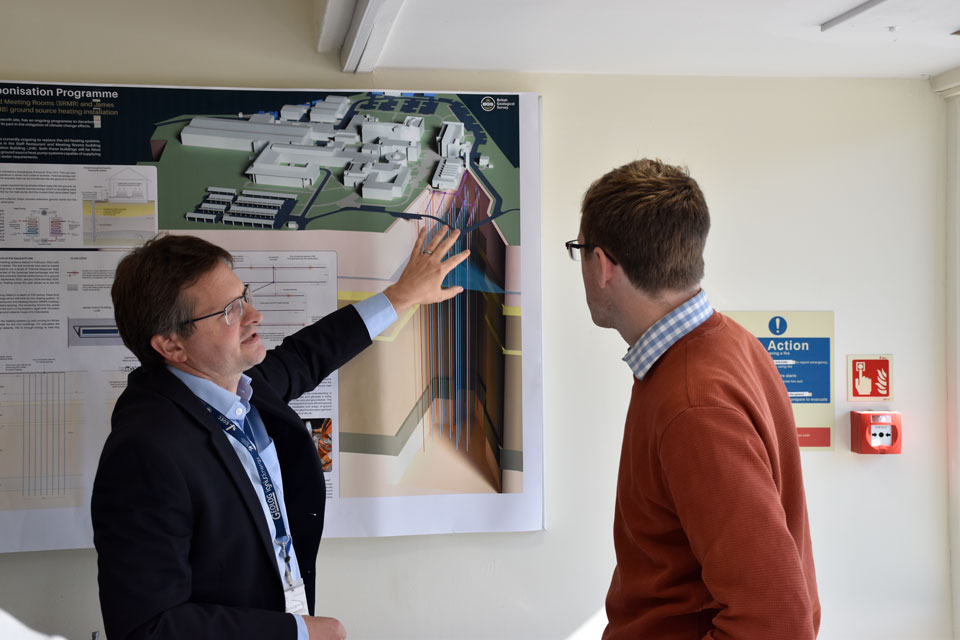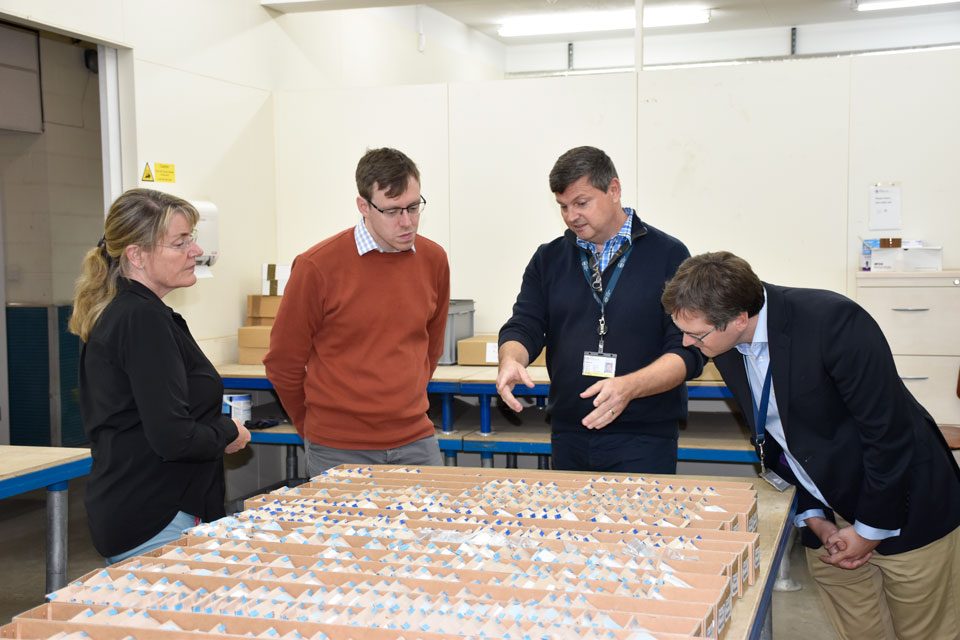Local MP checks in on development of new geothermal ‘living laboratory’ in Nottinghamshire
BGS has reached the halfway mark on its ambitious ground-source heat pump project at its headquarters in Keyworth, Nottinghamshire.
19/09/2024 By BGS Press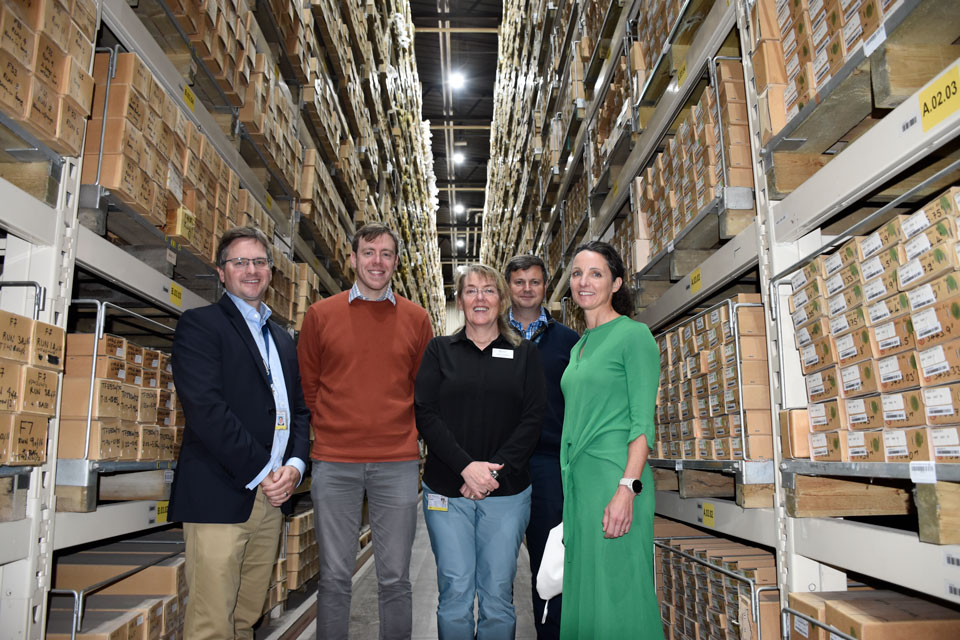
James Naish, MP for Rushcliffe, visited the British Geological Survey (BGS’s) headquarters in Keyworth, Nottinghamshire, on Monday 16 September 2024, to look at the ongoing installation work of BGS’s ground-source heat pump system. He was also given a tour of the National Geological Repository, the largest collection of geoscience samples from the UK. Work began on the £1.8 million, Government-funded heat decarbonisation project in February 2024. When finished, it will be the largest and most high-tech system of its kind in Rushcliffe, providing new scientific data to the public and will demonstrate how low-carbon heating technology can be applied to both new and existing public sector buildings.
It was great to visit the Keyworth site to hear about how BGS research is actively contributing to addressing pressing environmental challenges and to see what steps BGS is taking practically to reduce its own carbon footprint.
As someone who has worked in the energy industry, I passionately believe that the UK needs to embrace new technologies wherever possible so that we have a good, balanced energy mix, and I look forward to working with BGS over the coming years to promote its high-quality research and share its practical learnings from this innovative project.
James Naish, Member of Parliament for Rushcliffe.
Scanning of a 240 m-long rock core taken from the site has been undertaken using instruments developed for medical research, providing unique insights on the composition of the ground and the source of natural heat. The results are expected to be published soon, with the installation of the ground-source heat pump system involving 28 boreholes and five heat pumps, providing 360 kW of clean heating power, due to be completed by the end of 2024.
Once complete, the project will heat two large buildings and deliver a ‘living laboratory’. Equipped with state-of-the-art sensor technology in the boreholes and on the heat pump devices, it will provide data in real-time to help increase both industry and public understanding of ground-source heat pumps and show how they can be an effective solution for heating buildings in the UK.
It was a pleasure to welcome James Naish to BGS for the first time and show him around our headquarters in Nottinghamshire. In addition to a tour of the National Geological Repository, we were also able to provide an overview of our exciting new ground-source heat pump installation, which will not only help reduce our carbon footprint here on site but also provide invaluable geothermal data for the UK as a whole.
Karen Hanghøj, BGS Director.
The project is majority funded by the Natural Environmental Research Council (NERC) with a further contribution from the Government’s Public Sector Decarbonisation Scheme (PSDS). The scheme is run by the Department for Energy Security & Net Zero and is delivered by Salix Finance. The heat pump project is being delivered with partners Cenergist, Welltherm Drilling Ltd and Pick Everard.
Relative topics
Related news
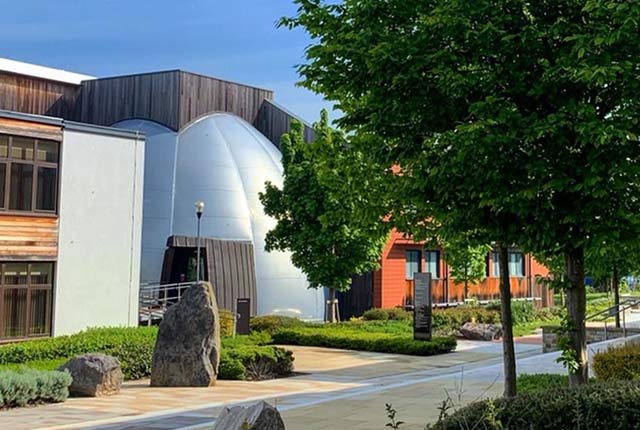
Making research matter: BGS joins leading research organisations in new national initiative
10/12/2025
A new alliance of 35 organisations has been formed that is dedicated to advancing science for the benefit of people, communities, the economy and national priorities.
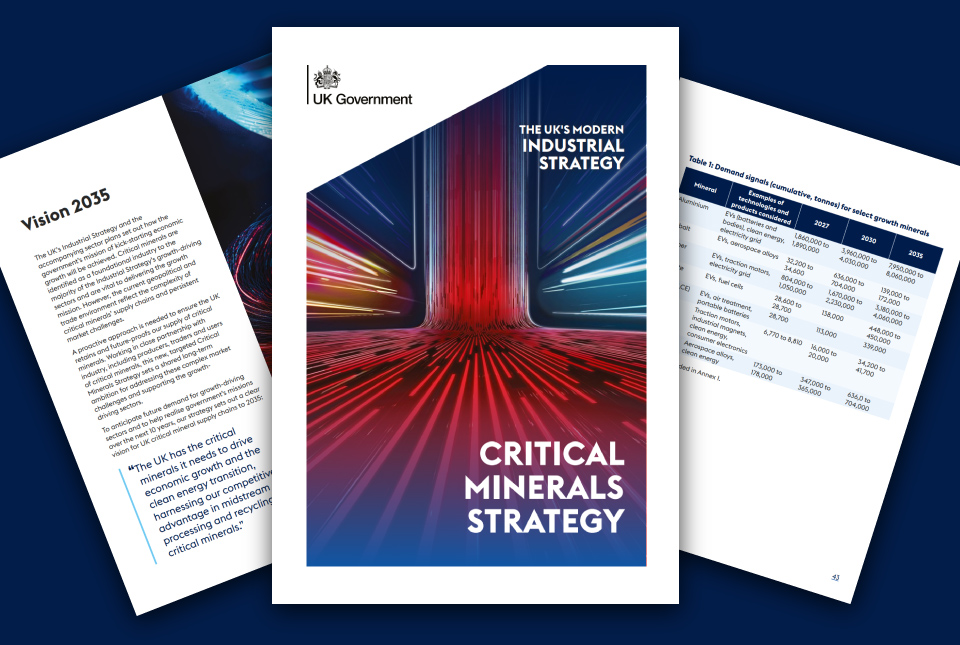
BGS welcomes publication of the UK Critical Minerals Strategy
23/11/2025
A clear strategic vision for the UK is crucial to secure the country’s long-term critical mineral supply chains and drive forward the Government’s economic growth agenda.
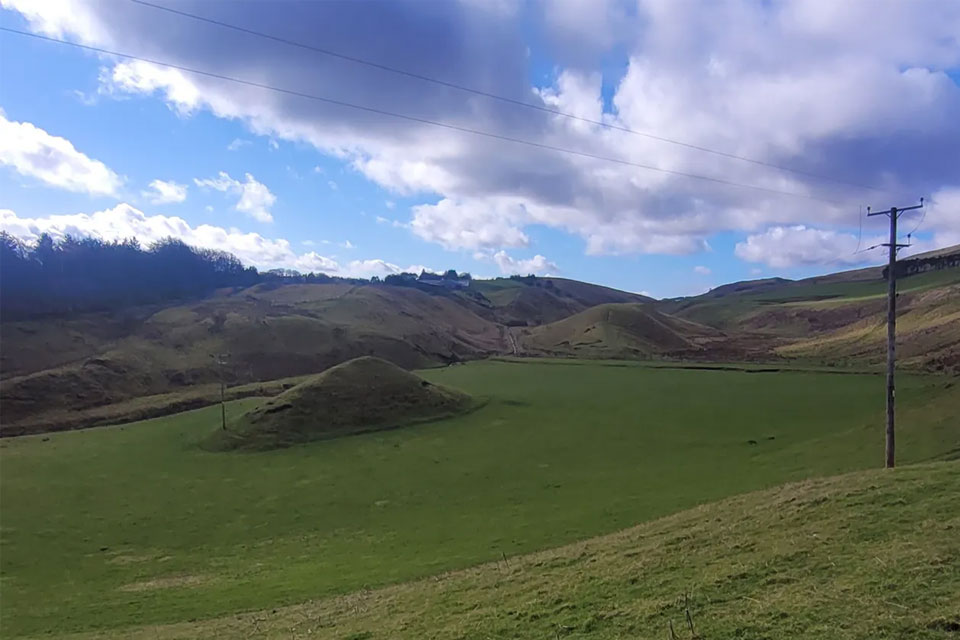
How the geology on our doorstep can help inform offshore infrastructure design
19/11/2025
BGS is part of a new collaboration using onshore field work to contextualise offshore data and update baseline geological models which can inform the sustainable use of marine resources.
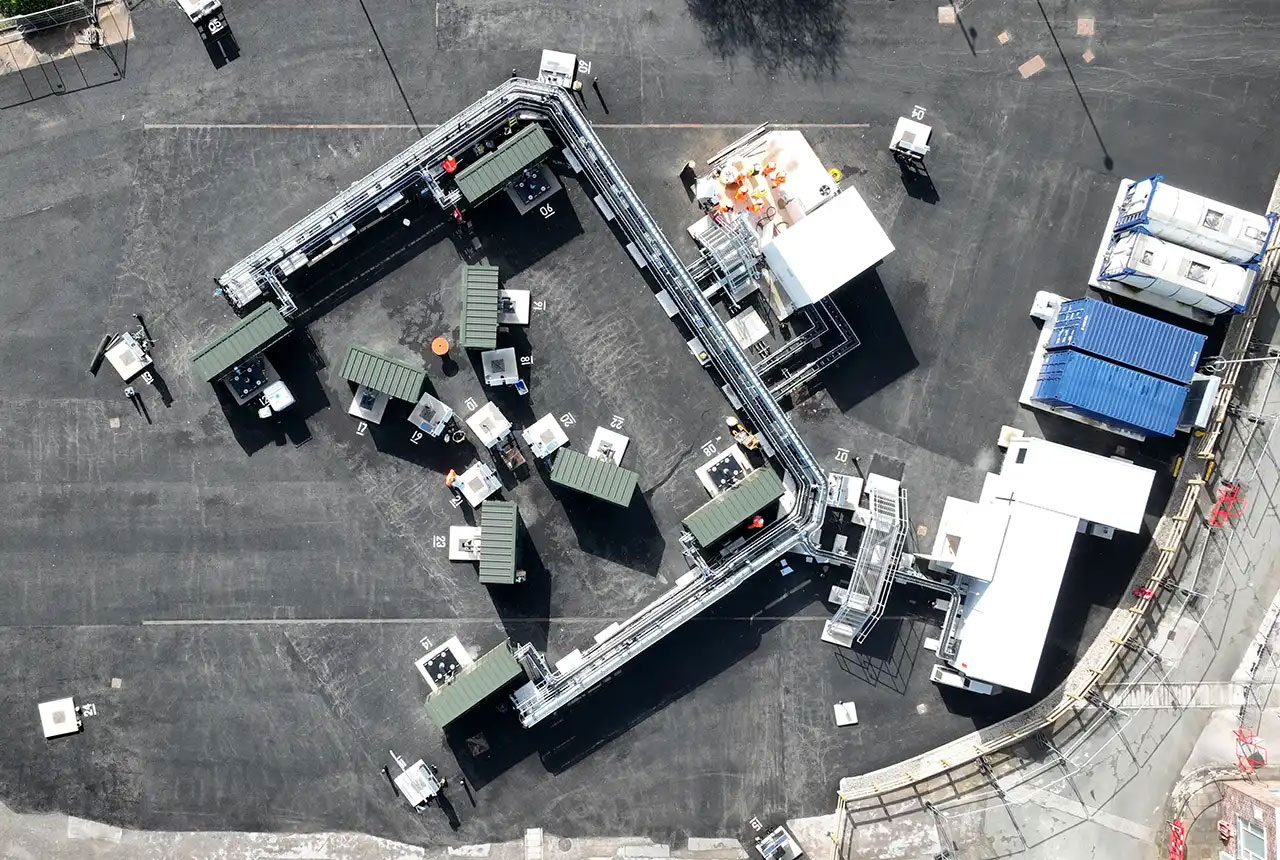
First distributed acoustic sensing survey completed at UK Geoenergy Observatory
12/11/2025
New research at the Cheshire Observatory has shown the potential for mapping thermal changes in the subsurface using sound waves.

World Cities Day: the geological story of our cities
31/10/2025
Understanding the rocks that underlie our towns and cities, the risks they can present and how they influence urban planning and redevelopment.
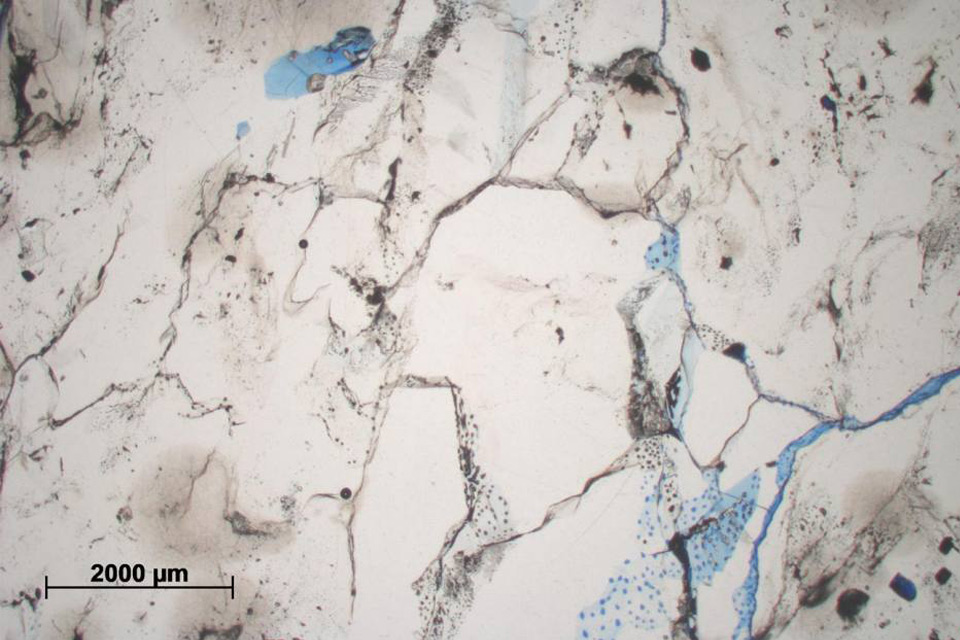
Funding awarded for study on hydrogen storage potential in North Yorkshire
22/09/2025
A new study has been awarded funding to explore the potential for underground hydrogen storage near the Knapton power plant.
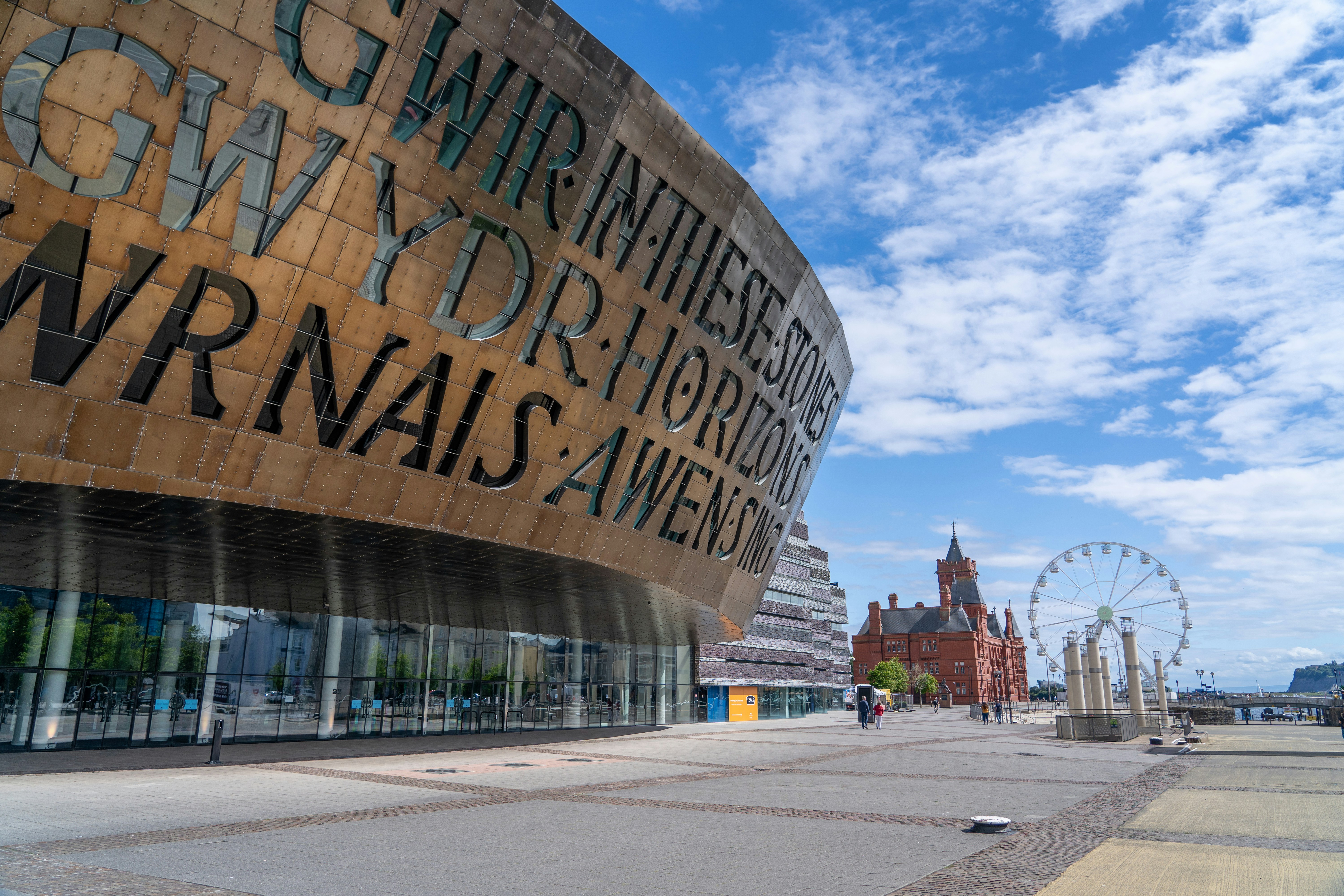
New geological ‘pathways’ discovered beneath Welsh capital
02/09/2025
Scientists have discovered cavities in the clay underneath Cardiff, which will influence the siting of future geothermal developments.
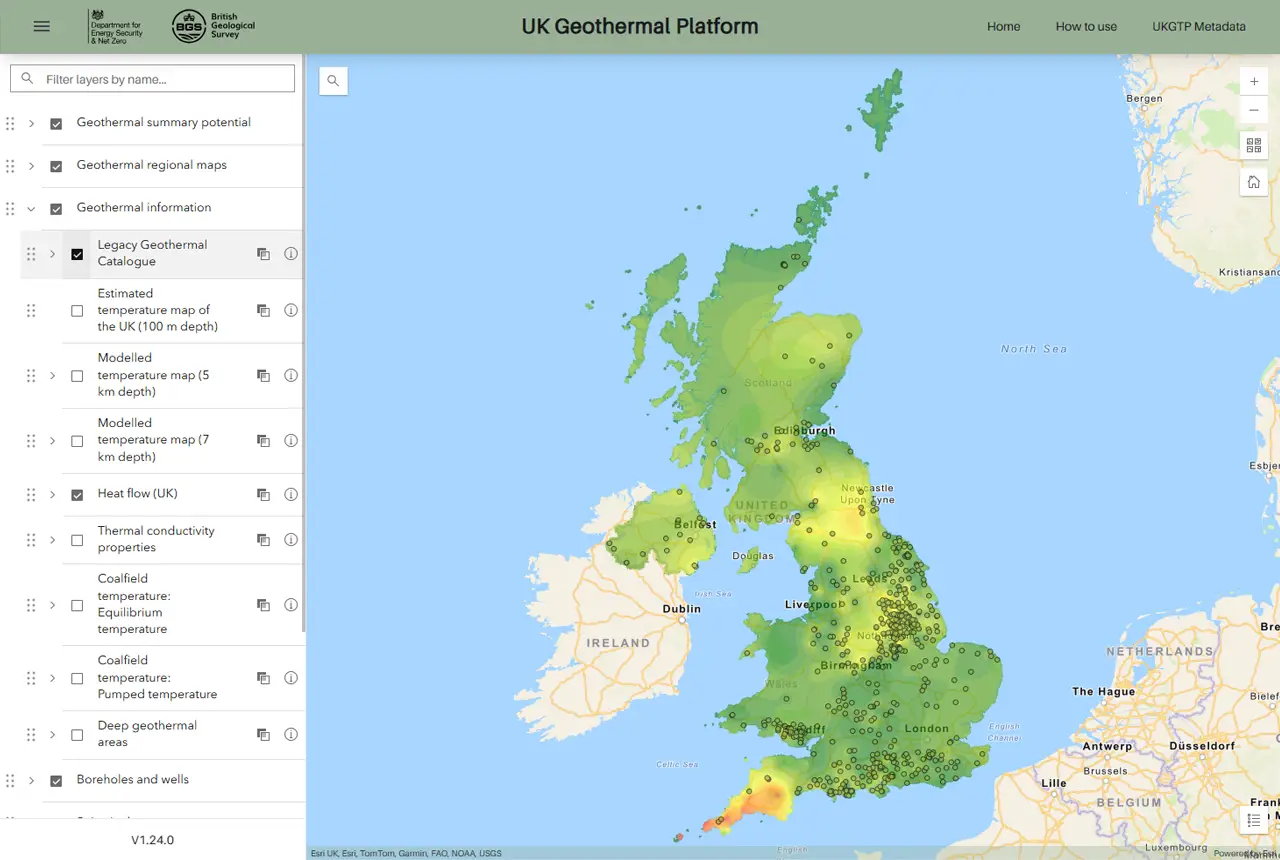
New platform highlights geothermal potential across the UK
11/08/2025
A new government-funded geothermal initiative, which includes an interactive map, has launched to help decision makers assess the geothermal potential across the UK.
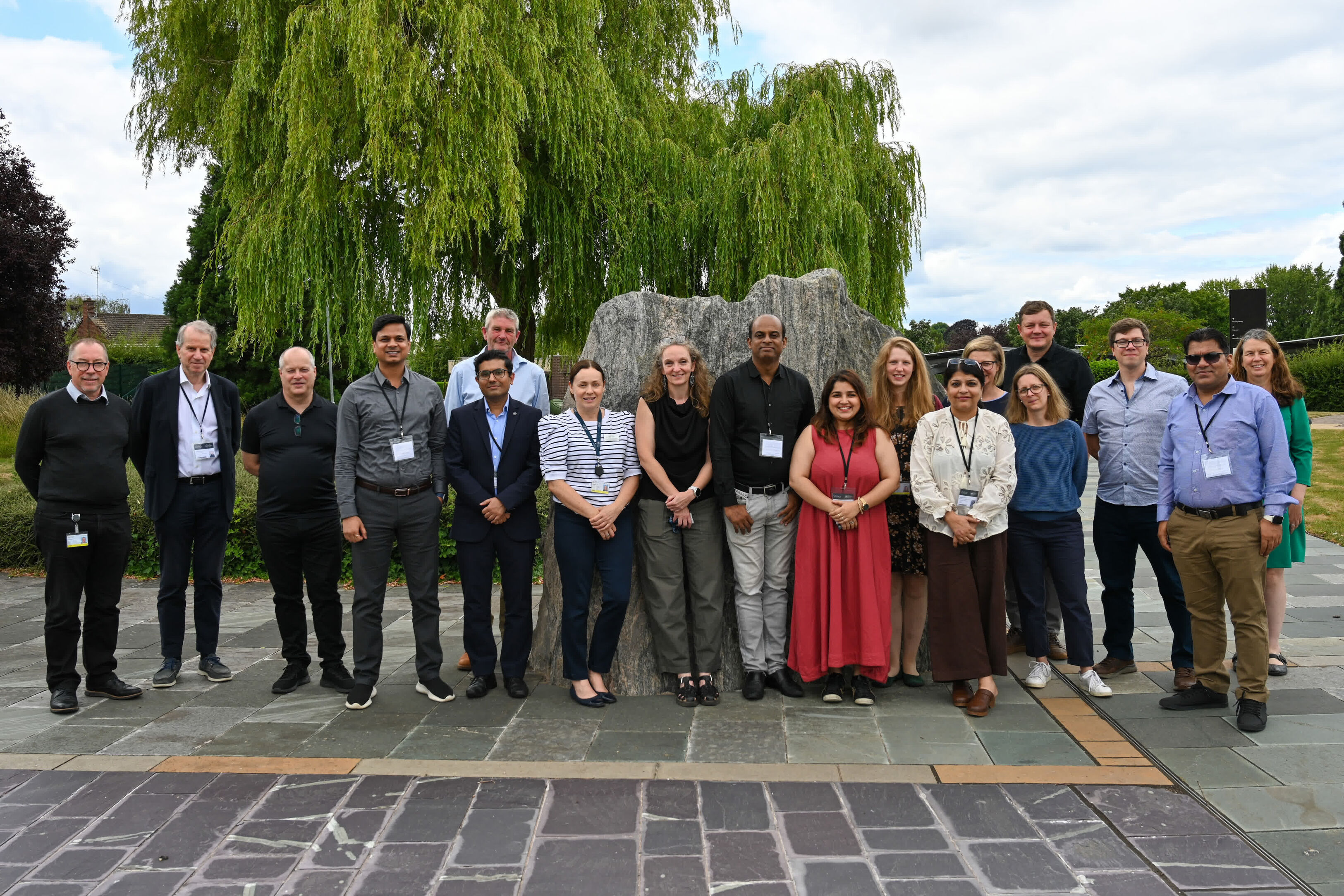
BGS hosts India for ‘deep dive’ on carbon capture and storage
30/07/2025
Some of India’s top scientists visited BGS to explore the UK’s carbon dioxide storage research potential.
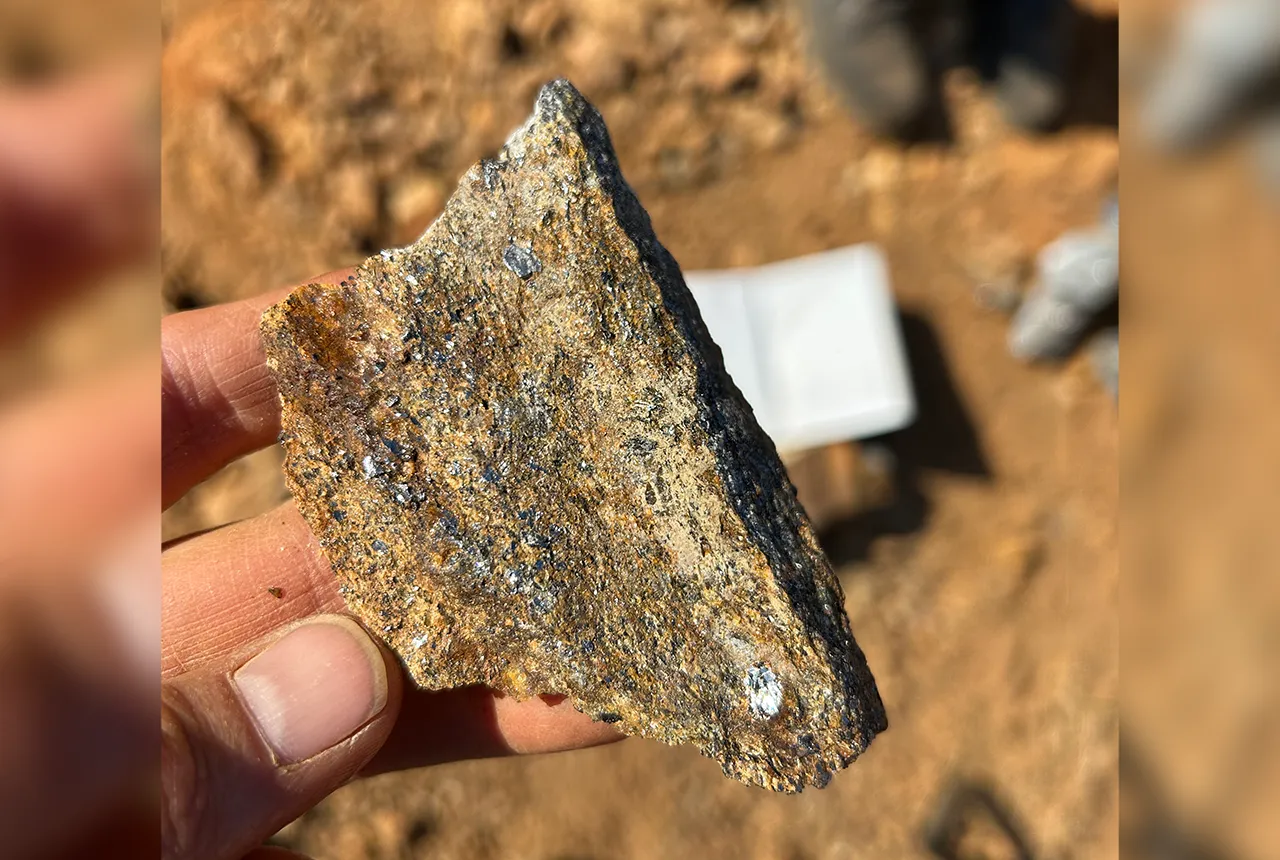
Zambia’s first critical minerals guide supports the country’s potential in global clean energy transition
18/07/2025
A new guide to Zambia’s critical minerals highlights the country’s current and potential critical mineral resources, including cobalt and lithium.
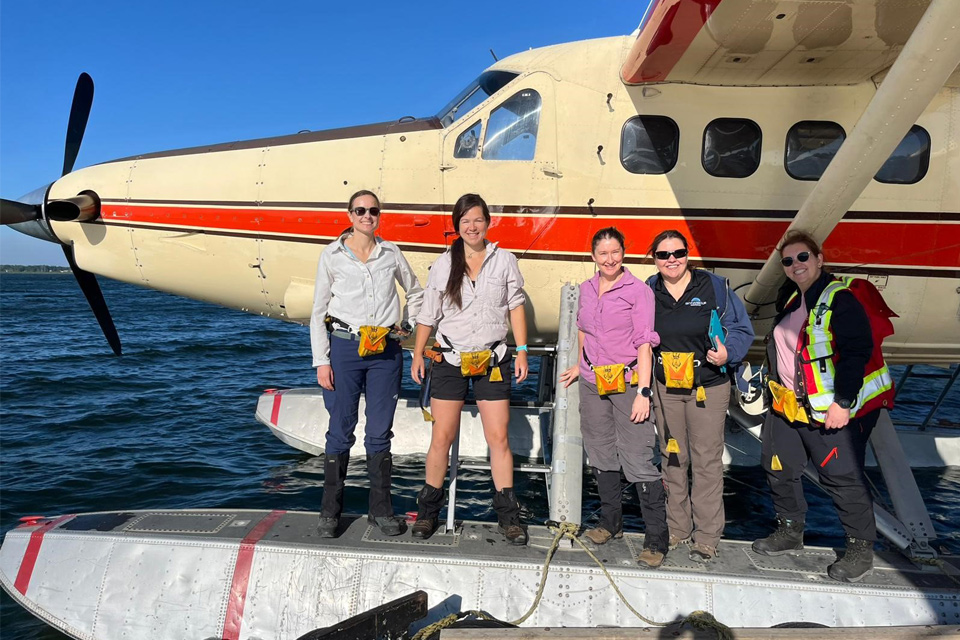
Funding awarded to UK/Canadian critical mineral research projects
08/07/2025
BGS is part of a groundbreaking science partnership aiming to improve critical minerals mining and supply chains.
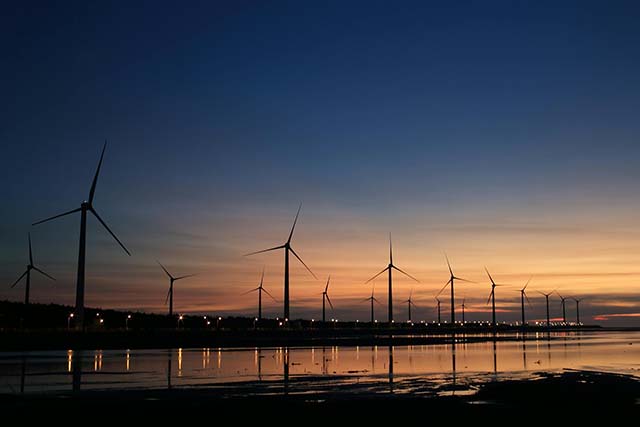
Goldilocks zones: ‘geological super regions’ set to drive annual £40 billion investment in jobs and economic growth
10/06/2025
Eight UK regions identified as ‘just right’ in terms of geological conditions to drive the country’s net zero energy ambitions.




